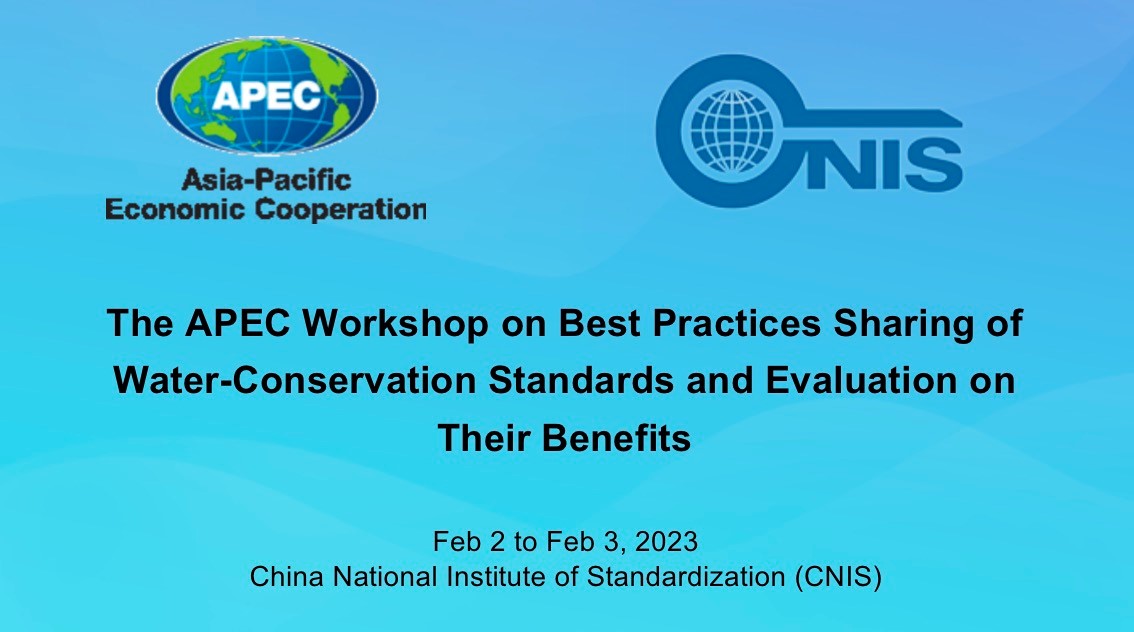| APEC workshop on water-conservation standards held online |
| Date: 2023-02-08 Source:CNIS |
On account of uneven distribution of water resources, population growth, climate change, etc., the Asia-Pacific Economic Cooperation (APEC) economies generally face the challenge of water shortage and related problems. To enhance cooperation and exchanges in water-conservation standardization, the APEC Workshop on Best Practices Sharing of Water-Conservation Standards and Evaluation on Their Benefits was held virtually on February 2-3, organized by the Resource and Environment Sub-institute of CNIS, who has made great contribution to this project. The workshop was attended by 50 representatives from non-governmental organizations (NGOs) and 8 economies, including Australia, Japan, the U.S., Thailand, Malaysia, the Philippines, Singapore and China. Presided over by Bai Xue, Researcher from the Resource and Environment Sub-institute of CNIS, the workshop invited 9 experts from Australia, the U.S., Japan, Thailand, China and NGOs to share the standardization progress and implementation of the corresponding countries, covering areas of water efficiency of products, sustainable water management, irrigation water management, and recycled water reuse. During the roundtable discussion, the attendees fully exchanged their views on issues such as mutual recognition of water-efficiency standards and labels, promotion of sustainable water management certification, and implementation and evaluation of water-saving standards in the Asia-Pacific region. Representatives of the economies reached the consensus that standardization work on water efficiency of products, sustainable water management and water reuse, is a technical backbone of water resource management. Also, it is necessary to vigorously promote regional mutual recognition of standards or labels, where further cooperation will be carried out in the future. The workshop facilitated the exchanges and cooperation among APEC economies in the field of water resource. With practical experiences and research achievements in water-saving standards shared, it supported the green and sustainable development in the region. CNIS will further exploit the advantages to promote green and low-carbon standardization, and share China's advanced practices with global partners.
|
|
Attachments:
|
|
